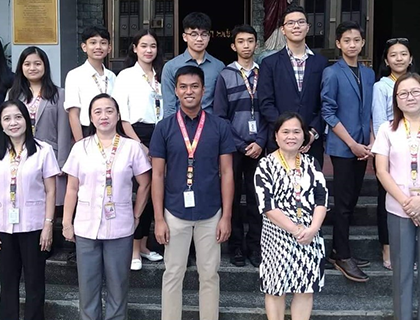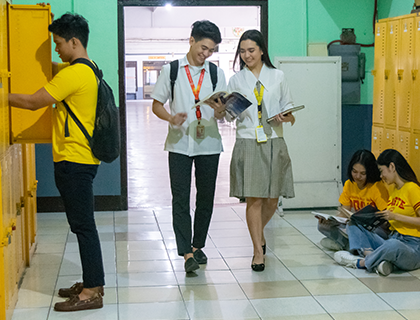Description
SSC-R Manila as a Catholic Higher Educational Institution administered by the Order of the Augustinian Recollects (OAR) exists because of the employees, students and other stakeholders who are the lifeblood of the school. The school community is convinced about the institution’s effectiveness, competitiveness and efficiency in delivering the school’s programs and services.
In the International Standard Organization, quality is the totality of characteristics of an entity that bear on its ability to satisfy implied needs. This means that quality enters all aspects of the relationships of all members of the Sebastinian community.
The establishment of a defined quality, with the opportunity to review whether quality has been achieved, is very important. Since life is very competitive, SSC-R Manila makes strategic decisions to meet the needs of the entire community that may affect its internal organization, its culture, its position and competitiveness in the different schools and its ability to complete and inevitably strive passion for excellence.
SSC-R Manila adheres that quality management is the “quality of services” being offered to all members of the community. With this, means such as research and development, techniques of regular and effective inspection, planning and evaluation and quality control to detect our processes and services that do not meet quality standards are established. More so, to meet the local and international quality standards, quality management principles, quality assurance and total quality management are implemented.
Total Quality Management
Quality Assurance
Quality Assurance Mechanism (QAM) is a method used by SSC-R Manila in managing all the educational programs and activities that affect the quality of services to prevent faults, damages and failures. QAM system aims to ensure that policies and guidelines are clear, and the processes are assessed to confirm that SSC-R Manila’s services could meet the needs of both internal and external stakeholders.
Administrators, faculty and staff members are well-trained. Processes are controlled and monitored to ensure that all members of the school community meet the needs of the educational processes.
Quality Assurance in SSC-R, Manila is an ongoing process that ensures the delivery of agreed standards. These agreed standards ensure that every system, of which quality is assured, has the potential ability to achieve a high quality of content. Thus, SSC-R’s goal of Quality Assurance is to continuously improve the educational programs and services in the academics, non-academics, course, program, and institutional levels.






